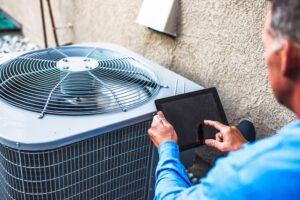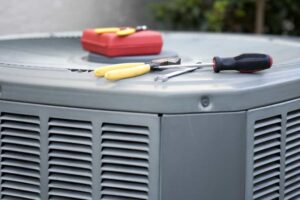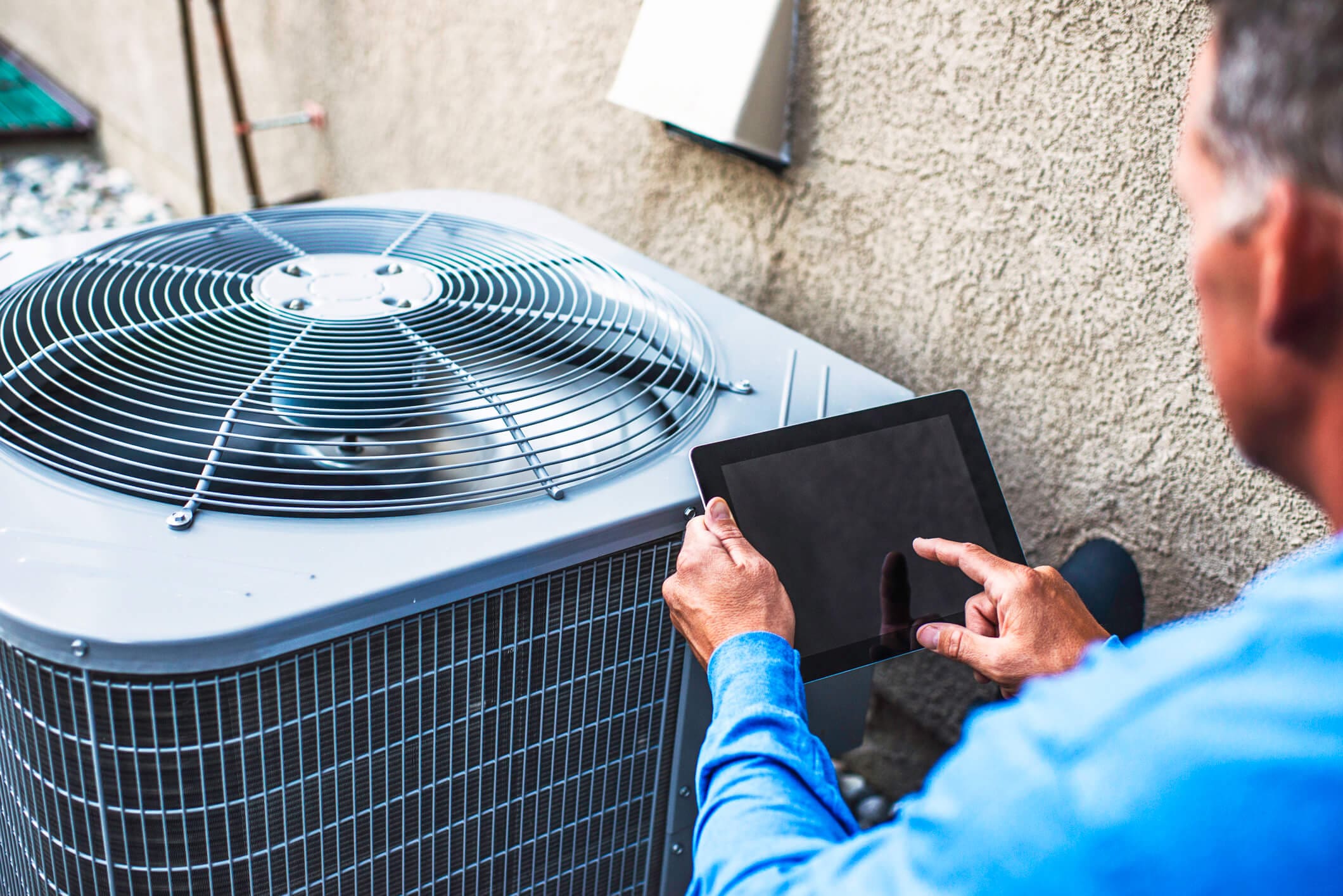If you live in Bakersfield, CA, or the surrounding areas, you might be on the hunt for the most energy-efficient air conditioner for your home. Someone may have recommended a variable speed AC to you, but what is it, and how is it different from other styles? The experts at Monarch Home Services have some tips about variable speed air conditioner pros and cons and what you need to know before you contact us for a system upgrade.

How Does a Variable Speed Air Conditioner Work?
A variable-speed air conditioner uses a special compressor that runs at different speeds. This compressor adjusts the air conditioner’s cooling output based on real-time temperature changes. Most traditional air conditioners operate at a fixed speed, but variable speed models adjust the speed of the compressor to meet the current cooling demand of your home, making it an energy-efficient air conditioning choice.
Variable Speed vs. Single-Stage vs. Two-Stage AC: What’s the Difference?
Air conditioners come in a range of sizes and capacities or speeds. What’s the difference between a single-stage vs. two-stage vs. variable speed AC?
- Single-stage AC: A single-stage air conditioner can only run at full power, which means it’s either on and running at full capacity or completely off, with no other options in between.
- Two-stage AC: This type of air conditioner has a compressor that operates at two speed levels (high and low), which adjusts the cooling output for maximum cool temperatures on hot days and lower capabilities on cool days.
- Variable-speed AC: A variable-speed air conditioner operates at a variety of capacities and speeds ranging from 25% to 100% of its capacity, depending on what you need your AC system to do to keep the indoor temperature comfortable.
Pros of a Variable Speed AC
There are many benefits to upgrading to a variable-speed AC for your home’s cooling needs.
Energy Efficiency
One of the most important variable speed AC benefits is its energy efficiency. Since they can run at different speeds, variable-speed ACs require less energy to deal with the ever-changing temperature fluctuations in your home. As a result, you’ll pay much less for your energy costs than you would with a single- or two-stage unit.
Better Humidity Control
Variable-speed air conditioners produce more consistent temperatures to help reduce humidity levels in your home. You’ll enjoy a more comfortable indoor environment without the excess sticky humidity. Thanks to the slower airflow, these AC units allow for more effective moisture removal.
Consistent and Precise Indoor Comfort
Variable speed systems can run at a lower speed than a single or two-stage system, so they constantly work to maintain a consistent indoor temperature. These air conditioners provide precise indoor temperature control that adjusts within an impressive narrow range of just one-half a degree. Since it adjusts to temperature fluctuations, it also reduces strain and stress on your system, resulting in less frequent repairs.
Quieter Operation
A variable-speed AC controls indoor humidity, so it won’t clog your air filters as fast as a single- or two-speed AC, resulting in much quieter operation. The continuous operation of the compressor at a lower speed also makes these air conditioners run more quietly.
Longer Lifespan
Air conditioners automatically cycle on and off depending on the thermostat setting and your cooling needs. Whenever an AC cycles, it puts more wear and tear on the system and eventually shortens its lifespan over time. However, variable-speed air conditioners make adjustments rather than turning on and off, so they typically last longer than other AC systems.

Cons of a Variable Speed AC
Learn about the cons of a variable speed AC.
Higher Initial Cost
Variable-speed air conditioners come with a higher price tag than other models, which means you’ll pay more upfront. Fortunately, Monarch Home Services has flexible financing optionsavailable to make paying for your new variable-speed air conditioner easier and more affordable.
More Complex Repairs and Maintenance
Variable speed AC maintenance and repairs are typically more complicated than basic single- and two-stage systems. Due to the continuous operation, variable-speed AC units produce more condensation, which can affect your ductwork over time if not properly insulated. They require more frequent air filter changes, and even small repairs are more complex, requiring the help of an experienced HVAC technician.
Is a Variable Speed Air Conditioner Worth It?
Is a variable-speed AC worth it?The answer depends on a variety of factors, including your budget, cooling needs, and desired energy efficiency. Consider the following when deciding whether a variable speed AC is right for you:
- In terms of SEER ratings and efficiency, variable speed air conditioners have one of the highest SEER ratings available at 20 or higher, making them extremely energy-efficient for affordable cooling.
- If fluctuating indoor temperatures bother you, a variable-speed air conditioner might be the best choice due to the adjusting compressor speeds that consistently maintain the temperature inside your home.
- People with smaller homes may only need a single- or two-stage air conditioner, while those in larger homes would get more benefits with a variable-speed AC.
- If you’re willing to pay more upfront for your AC system upgrade, a variable-speed AC is a good choice due to its longer service life.
- While variable-speed air conditioners require more frequent air filter changes, they also need less maintenance in general and cost less in upkeep overall.

Schedule a Consultation for Your AC Upgrade
Homeowners in Bakersfield and the surrounding areas trust the experts at Monarch Home Services for all their home cooling needs. Whether you need professional AC repairs and maintenance or a full AC system upgrade, we’re available to help you. Contact us today to learn more or to schedule a consultation.


